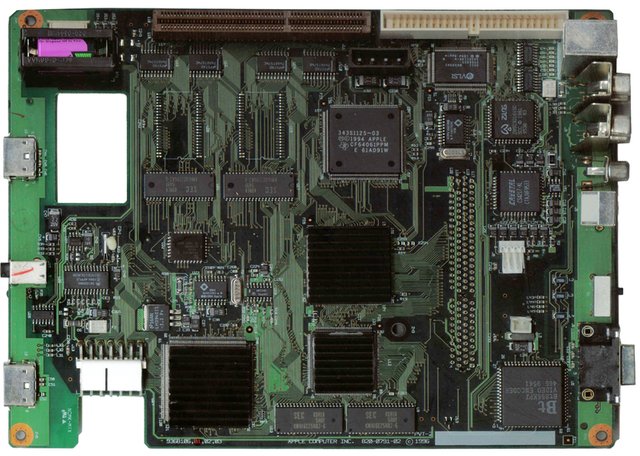Everyone knows Apple. But have you ever heard that in 1995 they created their own video game console, yet had to give up the idea only 2 years afterwards?
Apple Pippin - Was it a flop?
Apple is one of the most successful companies in the world, for many, the most innovative and successful. But what few know is that far from the Mac, iPhone, iPad and iPod success, Apple has made other products not so well known or successful. Perhaps the lesser-known Apple product is the Apple Bandai Pippin or Apple Pippin video game console. Yet, with that name, failure seemed to be inevitable ;)
BACKGROUND
It was 1993, and Apple was living its own version of Game of Thrones. Steve Jobs had been fired from his own company, the CEO who fired him, John Sculley, had resigned and Michael Spindler was the head of the company.
When Spindler assumed the CEO position, Apple was doing very well when it came to selling computers, but they had many problems in everything else. They invested a lot of money in R&D, but were receiving very little return from the variety of projects they generated. And given the increasing financial pressure and increasing popularity of Windows PCs, Spindler introduced something called the "Clone Initiative", a measure designed to license Apple software for third-party devices.
The Pippin gaming console came out from this initiative. Apple planned to license Pippin's design to third parties who would then manufacture and sell their own versions of console. The first partner Apple got was the massively successful Japanese toy manufacturer, Bandai.
Both companies agreed that Bandai would be responsible for manufacturing and marketing the console, while Apple would cover research costs and retain license rights for the console.
TOO ADVANCED FOR HIS TIME
Bandai dreamed about selling half a million consoles by year and Apple predicted Pippin would be "the forerunner of multimedia equipment capable of bringing text, video and audio to millions of homes that have refused to buy computers because of their cost or complexity." And they had no reason to think otherwise. The Apple Pippin boasted very good specs and some progressive ideas that were actually far ahead from their time. Apple wanted it to be more than a game console, Pippin was a console for work and play, something "for educational purposes, entertainment and information".
Pippin used a simplified version of the MacOS and was faster and more powerful than all other consoles on the market. It had a 4x CD-ROM drive, built-in Internet access, expandable memory, supported 8 and 16-bit colors. It had no block by region and had a trackball controller called AppleJack. It also supported keyboard and mouse connections, all powered by a PowerPC 603 processor at 66MHz. All for the price of $599.
COCKTAIL FOR FAILURE
While it is true that Apple and Bandai expected sales around half a million units by year, the fact is that initially Bandai only manufactured 100,000 units. At that time, Nintendo and Sega dominated the console market and the Sony PlayStation came to Japanese stores in 1994, just before the Apple Bandai Pippin was launched in March 1995. The console was launched in Japan as the Atmark and sold for 64800 yen (about $ 650), including 4 games and a dial-up modem.
The US model was called @ WORLD and launched in September of the same year for $600, with an unlimited Internet account of PSINet for $25 each month. These prices were around three times higher than the price of the Nintendo 64 and double the price of the Sony PlayStation, which sold for $299.
Apple intended Pippin to be a console for developers that would allow them to create unique games that could execute in all the versions of Pippin without limitations of region. But none of this could save the console Apple Bandai Pippin, which in its first year barely sold about 42,000 units, far from the 500,000 units they expected to sell in its first year.
As a matter of fact, most users didn`t really understand all the functions and didn`t know how to use its full potential. Therefore, they preferred the more affordable products of the competition.
Two years after its launch, in 1997, Steve Jobs returned to Apple and buried the Clone Initiative as well as the Apple Pippin console.
We will never know what would have happened Pippin if Steve Jobs had trusted the console, but since then Apple has never returned to develop anything like a video game console.
I found this great video on YouTube.
Check out the cool games of the Apple Pippin!
Has anybody ever played with the Apple Pippin?
I would love to check it out myself!
If you liked my post and want to read more about the topics mentioned below, please support me by upvoting and following me (@freefuture). I will definitely follow you back and upvote your cool posts.
ALSO if you think your friends may like this as well, why not RESTEEM it?
Thank you. I really appreciate your support. Please send me some feedback and comments so that I can further improve my next articles for you as I am still very new on Steemit ;) Have a great day!





It is such a great console, only demonstrates how fanboys can murder great products.
Downvoting a post can decrease pending rewards and make it less visible. Common reasons:
Submit
I agree ;)
Downvoting a post can decrease pending rewards and make it less visible. Common reasons:
Submit
This post received a 2.0% upvote from @randowhale thanks to @arkadiy! For more information, click here!
Downvoting a post can decrease pending rewards and make it less visible. Common reasons:
Submit
nice
Downvoting a post can decrease pending rewards and make it less visible. Common reasons:
Submit
Yes, I find it very interesting!
Downvoting a post can decrease pending rewards and make it less visible. Common reasons:
Submit
I never knew Apple had a console... wild. Sounds like an even more extreme version of the Dreamcast situation, just way too far ahead of its time to make sense for consumers.
Downvoting a post can decrease pending rewards and make it less visible. Common reasons:
Submit
Exactly ;)
Downvoting a post can decrease pending rewards and make it less visible. Common reasons:
Submit
Definitely good memories. Not many have even known that Apple had that product. Def Nerd Alert
Downvoting a post can decrease pending rewards and make it less visible. Common reasons:
Submit
:D Yes, I admit that I have been a video game nerd ;)
Downvoting a post can decrease pending rewards and make it less visible. Common reasons:
Submit